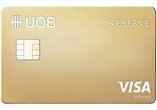Who are supplementary credit cards suitable for?
- Couples. Combine spending on a single account to earn more credit card reward points.
- Parents. Issue supplementary cards for the kids and monitor their spending.
- Families. Use supplementary cards to simplify the family's finances with the same credit card account.
What to compare for supplementary credit cards
- Rewards. If you're considering a new credit card that earns points, will the supplemental card have the same earn rate?
- Perks. Will the supplemental cardholders have access to the same mouth-watering benefits as you do on the primary one?
- Fees. Is there a fee per supplementary card, or is it free to add additional cards? If there is a fee, it can add up quickly. Note that just because a credit card has no annual fee does not automatically mean supplementary cards are free.
- Credit limits. Can you specify a credit limit for the supplementary card?
- Eligibility. Who can you give an additional card to? How many can you get?
How to compare credit cards with supplementary cards
- Compare rewards and benefits across various cards to find the most attractive credit card offers.
- Look for any fees associated with supplementary cards, which may vary between card issuers.
- Check the credit limit structures. Do they offer individual or shared limits?
- Assess eligibility criteria and make sure you aren't going to apply for something you can't get.
- Get your documents together and submit your application. Online is the fastest. Myinfo makes it even easier.
- Activate the main card when they are delivered, then add the supplementary cardholders.
Pros and cons
Pros
- Earn rewards faster. Spending with supplementary cards means more reward points.
- Easier financial management. Monitor family finances with ease.
Cons
- Risk of overspending. Supplementary cardholders — who are your responsibility — could spend recklessly.
- Credit score damage. Potential negative impact on the primary cardholder's credit report if mismanaged.
- Supplementary cardholders don't build credit. This is because they are not the main name on the account.
- Supplementary cardholders don't collect points. Any points or cashback go to the main cardholder.
FAQs
What is the difference between a primary and supplementary credit card?
A primary credit card is issued to the cardholder who applies for it. A supplementary card is an additional card linked to the same account that a primary cardholder can provide to a loved one or friend.
Who is responsible for the charges on a supplementary credit card?
The primary cardholder is responsible for any charges made on a supplementary credit card. Transactions made with the supplementary card are consolidated into the primary cardholder's account.
Do supplementary cardholders build credit?
No. Supplementary cardholders will not build credit using a supplementary card. Only the primary name on the account will build credit (or have their credit impaired if they mismanage the account).
How do I apply for a supplementary credit card?
Applying for a supplementary credit card typically requires the primary cardholder to fill out an application form with the prospective supplementary cardholder's personal details, which is then submitted to the bank for approval.





